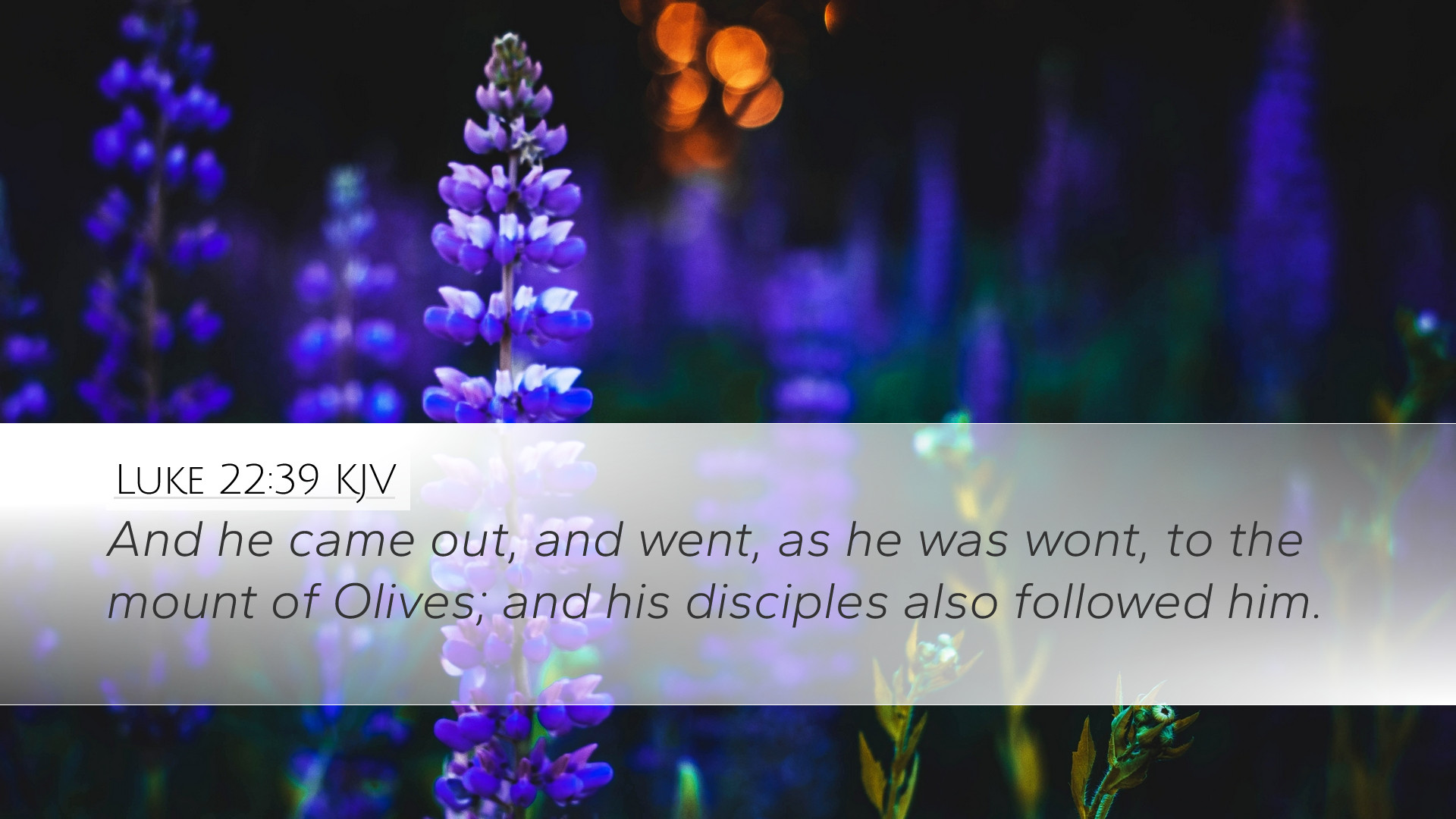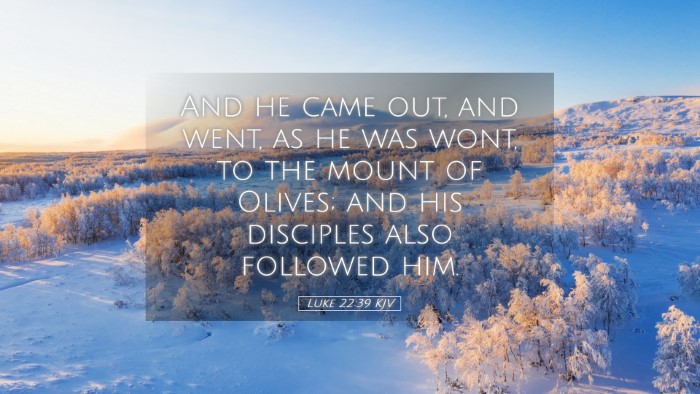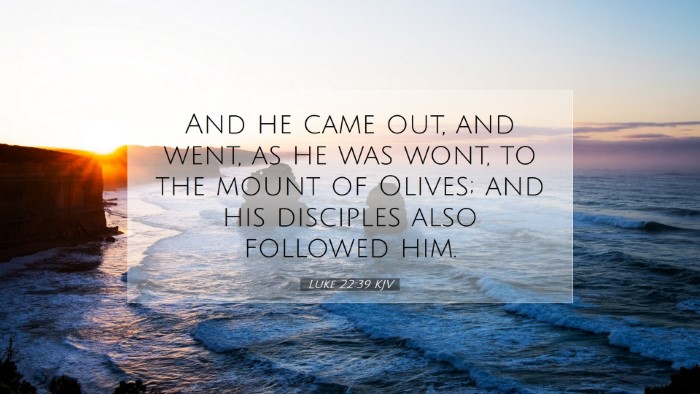Commentary on Luke 22:39
Luke 22:39: "And he came out, and went, as he was wont, to the mount of Olives; and his disciples also followed him."
Contextual Background
This verse occurs in the context of the Passion narrative, where Jesus prepares for his impending crucifixion. The Mount of Olives holds significant meaning, both geographically and spiritually, as it was a place of solitude for Jesus and a site of important prophetic declarations.
Insights from Matthew Henry
Matthew Henry emphasizes the prayerful habits of Jesus, noting that His return to the Mount of Olives was a customary practice. This habitual retreat serves as a model for believers to follow in their own prayer lives. Henry asserts that "the mount speaks of elevation," highlighting that Jesus sought to rise above the imminent trial through prayer.
Henry also reflects on the importance of solitude in the life of faith, suggesting that it is vital for spiritual rejuvenation. He points out that Jesus went to "the place where he was wont to pray," indicating that establishing personal prayer locations is crucial for maintaining a vibrant spiritual life.
Insights from Albert Barnes
Albert Barnes comments on the geographical significance of the Mount of Olives, indicating that it overlooks Jerusalem and was a place where significant events transpired. Barnes notes that this is where Jesus often taught His disciples, and it symbolizes the prophetic vision of Jesus as He prepared for His trial and crucifixion.
Barnes also discusses the response of the disciples following Jesus. Their action reflects a commitment to follow Him, even as they grapple with the unfolding events leading to His suffering. This moment captures their loyalty and foreshadows the ultimate test of faith they would face.
Insights from Adam Clarke
Adam Clarke delves into the theological implications of this moment. He points out that Jesus' retreat to prayer depicts His human nature's response to the heavy burden of His mission. Clarke asserts that "in His humanity, Jesus needed the strength of communion with His Father." This emphasizes the dual nature of Christ, both divine and human, revealing the necessity of seeking divine strength in times of distress.
Moreover, Clarke reflects on the symbolism of the Mount of Olives, citing Old Testament connections to the coming Messiah and relating them to the unfolding narrative. He interprets the actions of Jesus as a fulfillment of Scripture and a demonstration of His divine authority.
Theological Applications
From these commentaries, several theological applications emerge:
- The Importance of Prayer: Jesus’ return to the Mount of Olives emphasizes the need for prayer, especially in times of distress or decision-making. This illustrates the deep reliance on God that leaders, clergy, and believers should emulate.
- Commitment to Discipleship: The disciples’ following of Jesus signifies loyalty and the call to follow Christ, no matter the circumstances. This encourages individuals to cultivate a strong commitment to Jesus’ teachings and mission.
- The Dual Nature of Christ: The retreat to pray highlights the human aspect of Jesus. Pastors and theologians can reflect on the necessity of acknowledging His humanity while still affirming His divine nature.
- Prophetic Significance: Understanding the location of the Mount of Olives enriches the narrative by providing a connection to Old Testament prophecies regarding the Messiah, reinforcing the faithfulness of God’s plan through history.
Conclusion
In Luke 22:39, we find rich theological insights that provide a framework for understanding prayer, discipleship, and the humanity of Christ. Drawing from the thoughts of Matthew Henry, Albert Barnes, and Adam Clarke, we see how Jesus serves as a model for believers in their pursuit of a faithful life in prayer and commitment.
This narrative invites pastors, students, and scholars to reflect deeper on what it means to follow Christ, especially in the face of trials, and to seek the strength that comes through communion with God.


